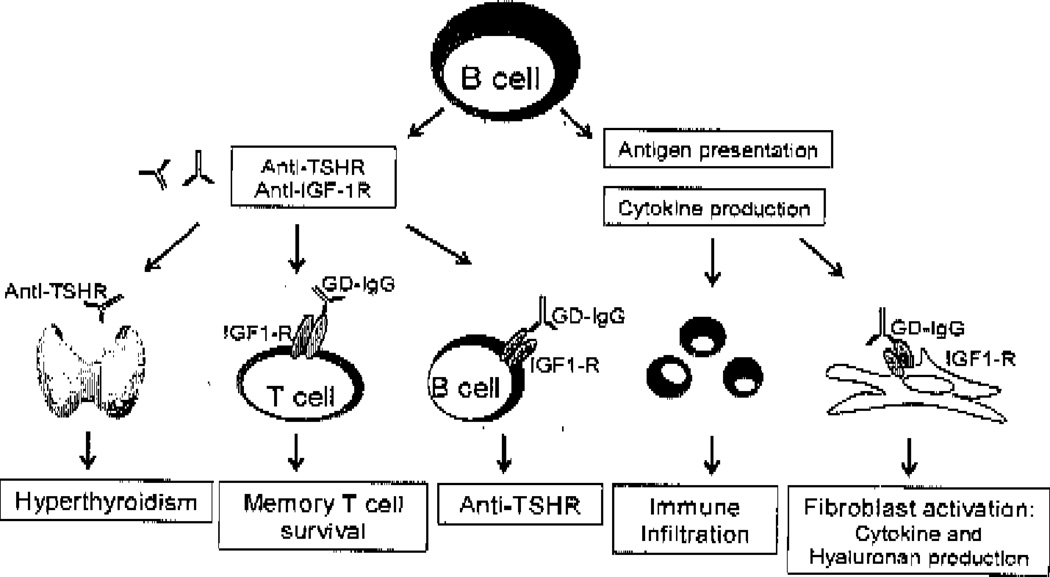Figure 1.
The multifaceted role of B cells in Graves’ disease. B cells produce autoantibodies to the TSHR and IGF-IR which leads to hyperthyroidism and potentially fibroblast activation. B and T cells from Graves’ patients display increased expression of the IGF-IR and activation of this receptor via GD-IgG enhanced B cell autoantibody production and T cell survival. Furthermore, B cells are excellent antigen presenting cells and produce cytokines which may be central to immune infiltration and the exuberant inflammatory response demonstrated in patients with Graves’ disease.

